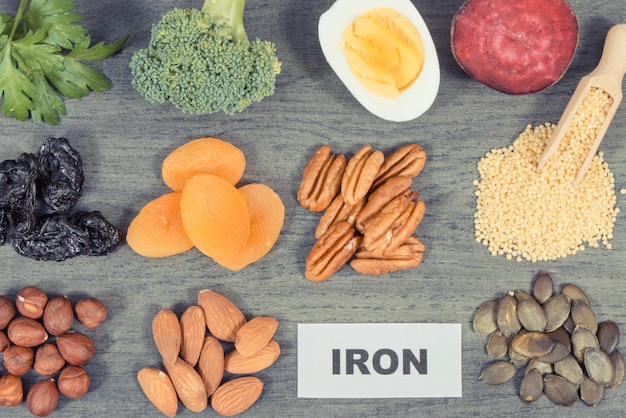What is Dextrin?
Dextrin is a carbohydrate derived from dextrose (glucose) and is produced through the hydrolysis of starches. Hydrolysis involves water splitting into its basic molecular components and attaching to other molecules. There are several types of dextrin, but they all have a similar formula and function in the body. Dextrin is commonly used in glue products due to its adhesive qualities and safety. The indigestible form of dextrin is often used as a fiber supplement, which is what’s contained in my Detox Foot Pads.
The Health Benefits of Dextrin
Dietary fiber, including dextrin, offers numerous health benefits such as weight loss and toxin cleansing. Dextrin has been linked to support for heart health, blood sugar regulation, and overall well-being. Here are some of the top benefits of dextrin:
Promotes Healthy Intestinal Flora
Dextrin is a prebiotic, meaning it feeds probiotics or “good” bacteria. It has been shown to aid lactobacilli, a beneficial bacteria that supports digestion. As good bacteria proliferate throughout the digestive system, a balanced ratio of good to bad bacteria is established.
Supports Healthy Cholesterol Levels
Dietary fiber has been shown to reduce “bad” cholesterol (LDL) levels, supporting cardiovascular health. As a dietary fiber, dextrin can reduce triglyceride levels, which are fats in the blood that increase the risk of heart disease and stroke. Dextrin may also help maintain “good” cholesterol (HDL) levels.
Relieves Occasional Constipation
Fiber provides bulk in the intestines, aiding in the elimination of waste through increased bowel movement frequency. For effectiveness, fiber, including dextrin, needs to be consumed with plenty of water. Without hydration, fiber can actually compound constipation. Dietary fiber supplements often contain dextrin because it’s so effective.
Cleansing
The cleansing effects of dextrin are tied to its ability to increase bowel movement frequency. Many toxins are stored in human waste, and dextrin helps eliminate these wastes regularly. Indigestible fiber also attaches to various toxins in the body, aiding in their excretion. Additionally, dextrin promotes the growth of beneficial bacteria in the digestive system, which helps reduce toxic bacteria that contribute to common health conditions.
Supports Healthy Blood Sugar
Fiber is known for supporting healthy blood sugar levels in both healthy individuals and type II diabetics. Dextrin, like other dietary fibers, may reduce the glycemic load of a meal containing carbohydrates. These fibers must be taken before or during the meal to have a noticeable effect. Although fiber is a carbohydrate, it is not digested and does not raise blood sugar or insulin levels. Water-soluble fiber, like dextrin, has the most beneficial effect on glucose levels.
Supports Heart Health
The cholesterol- and triglyceride-lowering effects of dextrin make it an excellent dietary addition for supporting heart health. Dextrin may support the heart and blood vessels, potentially lowering the risk of heart disease. While these are the main ways dextrin supports heart health, researchers speculate that fiber may offer additional benefits to the cardiovascular system. Future studies may provide more evidence in support of dextrin and heart health.
Provides Satiation and Healthy Weight Loss
Dextrin may help provide a feeling of fullness, helping the body feel satisfied. Fiber creates bulk in the stomach and breaks down slowly, which can be helpful for those looking to lose weight. Individuals wishing to reduce snacking between meals may benefit from incorporating more fiber-rich foods into their diet. Promoting a natural feeling of fullness may support sustained, natural weight loss. Dextrin may also help reduce the size of fat cells, potentially aiding in the fight against obesity. More research is needed to determine if indigestible carbohydrates like dextrin can combat obesity effectively.
Supports Colon Health
Research has shown that individuals who consume higher levels of water-soluble fiber have a decreased risk of colorectal cancer compared to those who consume a low-carbohydrate diet. There are several theories behind this benefit. One theory is that fiber’s effectiveness in facilitating waste removal reduces an interior toxic environment conducive to cancer. Another theory is that fiber feeds good bacteria in the intestines, which may protect the colon. Additionally, people who eat a high-fiber diet often consume more plant foods, which contain antioxidants that may support colon health.
Conclusion
Dextrin, a carbohydrate derived from dextrose, offers numerous health benefits, particularly as a dietary fiber. It supports healthy intestinal flora, cholesterol levels, and blood sugar, while also aiding in weight loss, cleansing, and colon health. Incorporating dextrin into your diet can contribute to overall well-being and support various bodily functions.

